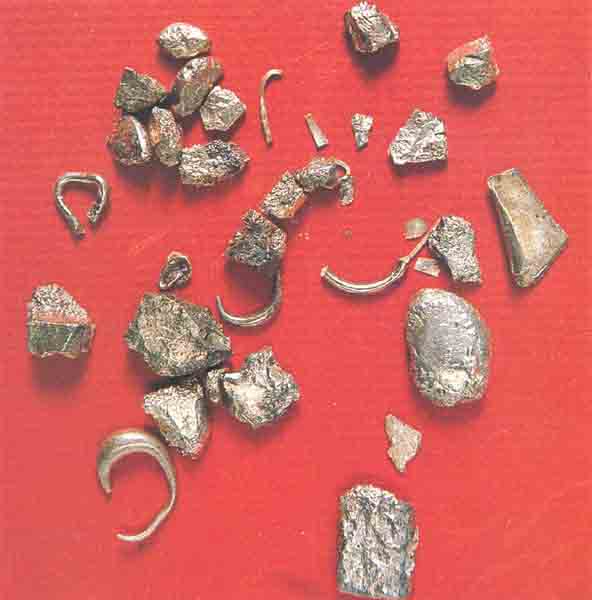Image Details

Courtesy Ze’ev Yeivin
A hoard of silver pieces discovered at Eshtemoa in the Judean hills and dating from the late tenth to the eighth centuries B.C. Before the invention of coins with fixed face-values, people bought and sold goods and services by valuing them against specific weights of metal, generally gold or silver (and also, in Egypt, copper). Depending on varying conditions of time and place, the silver shekel contained approximately 11 to 12.25 grams of silver; to check the amount of silver exchanged in a transaction, people sometimes carried small stone weights and a balance scale (see Deuteronomy 25:13–15; Proverbs 16:11; and Micah 6:11). The widespread use of silver as a medium of exchange is shown by the fact that both the Bible and the Laws of Hammurabi give the price of slaves as 20 silver pieces.
